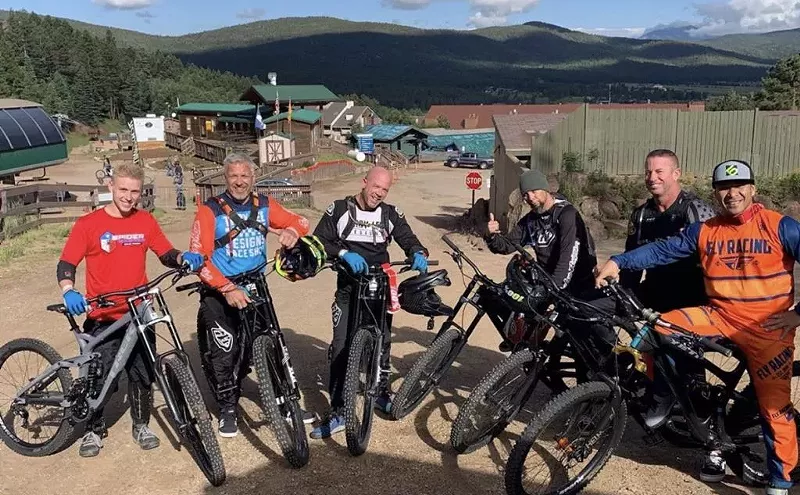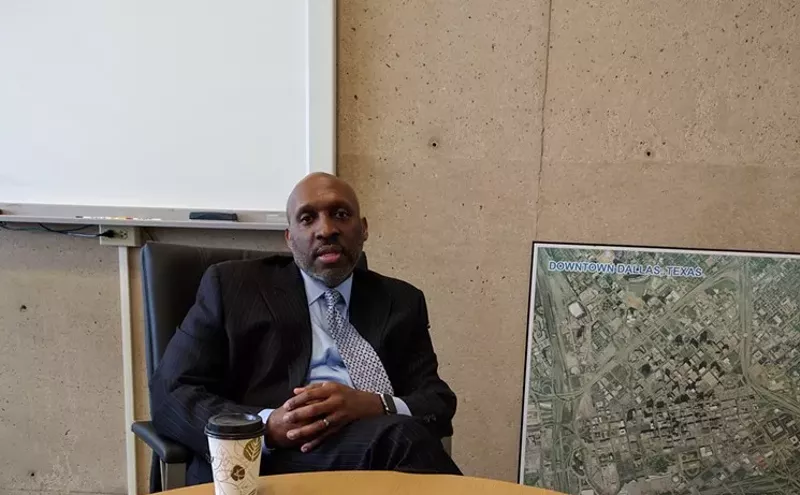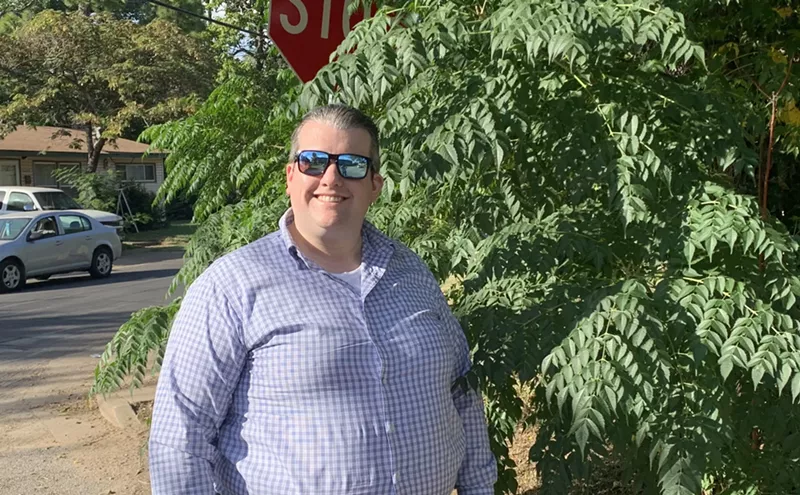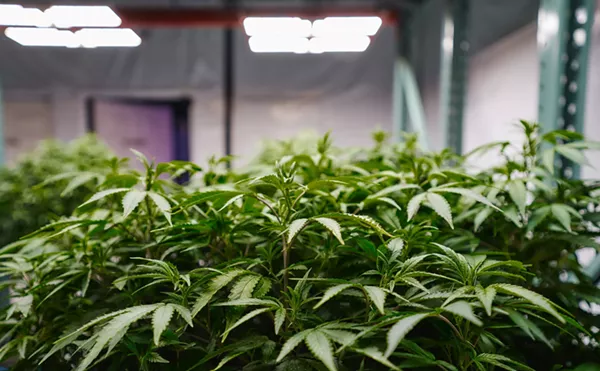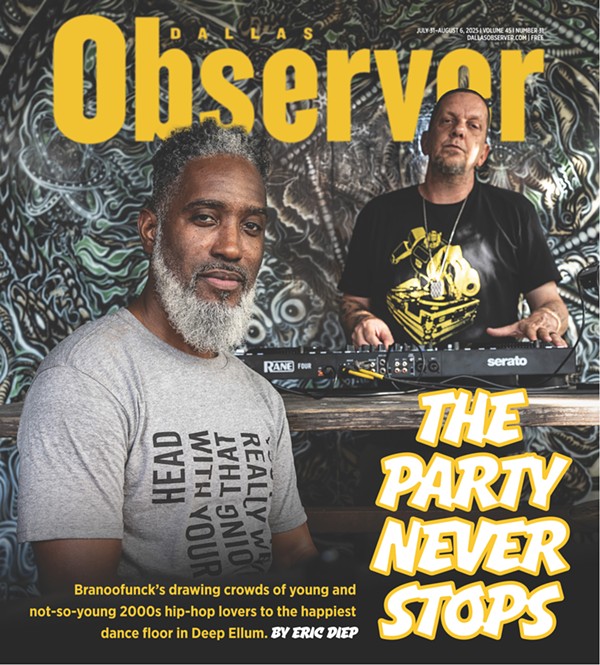Funding from the Homeland Security Grant program has given the Dallas Police Department access to a “web-based intelligence” platform called Cobwebs for the last three years, and an easy-to-overlook item on today’s City Council consent agenda will renew the contract for another three.
The Cobwebs system, founded by Israeli Defense Force veterans in 2015, is used by the Texas Department of Public Safety (DPS), Immigration and Customs Enforcement (ICE) and the New York and Los Angeles police departments. According to a city memo, the technology is an “efficient tool” that is used to survey the social media accounts of criminal suspects. The platform is able to extrapolate information “from multiple social media platforms” about a specific person.
“Data obtained through this software includes associated persons, places frequented and patterns of activities about a potential suspect,” the memo reads. “This type of data assists DPD in stopping criminal enterprises quickly and effectively in their efforts to reduce crime.”
A DPD spokesperson told the Observer the technology is used to “monitor open-source social media for threats against public safety and special events” and to aid in ongoing criminal investigations. The software’s geofencing application — a tool that allows users to track the movements of a mobile device within a specific area — is available but “not widely used” by DPD, the spokesperson said.
Dallas City Council Member Gay Donnell Willis, a member of the council’s Public Safety Committee, added that access to the software is limited to a small group of officers who serve in the department’s intelligence-focused Fusion Center.
“[Cobwebs is] only available to real-time crime center personnel. They are held to a higher standard, and the monitoring must have a criminal nexus,” Willis said. “Since [the program] is based on scouring publicly available information, I am 100% in favor of giving our DPD law enforcement this tool that can hopefully stop a crime before it starts.”
Willis said she believes the software can be used to improve efficiency in the department’s investigatory work. In addition, during large events, such as a parade or marathon, it can provide officers with a “real-time assessment” of communications related to the event rather than leaving the department to rely on a “see something and call it in” process.
“People are idiots. They will tag their friends in the most crazy clues that they committed a crime, because they like to boast." — Andy Reggio, Dallas-based private investigator
tweet this
Cobwebs has also been critical for investigating threats made against schools, Willis said. Often a name or social media handle used to make a threat can be enough for Cobwebs to find a phone number or other contact information that can be used to locate the individual.
Dallas’ contract with Cobwebs is relatively small — around $304,000 out of the general fund over the next three years — but the larger contracts of organizations like DPS and ICE — which the Texas Observer reports pay $5.3 million and $2.7 million, respectively, for the Cobwebs service — have drawn scrutiny from privacy and surveillance experts.
The Cobwebs Controversy
Cobwebs bills itself as a threat-identifying security tool capable of scanning the open, deep and dark web, but it has faced accusations of enabling more sinister uses than those advertised by local law enforcement agencies. Facebook’s parent company, Meta, identified Cobwebs as a part of the widespread, international “surveillance-for-hire industry” in a 2021 threat report.
The report states that Meta found evidence that “cyber mercenaries" operating under the guise of crime fighting or anti-terrorist work “regularly targeted” journalists, dissidents and human rights activists around the world. The report accused Cobwebs of engaging in the shady targeting of “opposition politicians and government officials” in Hong Kong and Mexico.
“To support the work of law enforcement, we already have authorized channels where government agencies can submit lawful requests for information, rather than resorting to the surveillance-for-hire industry which indiscriminately sells these services to anyone willing to pay, including known bad actors,” the report states. “For their targets, it is often impossible to know they are being surveilled across the internet.”
Six companies — including Cobwebs — were banned from operating on Meta platforms as a result of the report.
Others point to the Cobwebs geofencing application as a legally and ethically murky area. In 2018, the U.S. Supreme Court ruled in Carpenter v. United States that police are required to have a warrant before getting cellphone location data from data providers. With Cobwebs, geofencing offers a workaround because the owners of tracked devices are technically left anonymous.
“In Texas [GPS tracking] is illegal but geofencing, which is almost the same, is not. So it's a very big gray area on whether [police officials] are going to need a warrant for that,” Andy Reggio, a Dallas-based private investigator, said. “It’s very handy in protests or riots when you get groups of people. From my professional opinion, that would be where [police departments] use it.”
And when it comes to gang-related investigations, Reggio added, Cobwebs can likely benefit officers by identifying an individuals’ associates through obscure social media data.
“Since [the program] is based on scouring publicly available information, I am 100% in favor of giving our DPD law enforcement this tool that can hopefully stop a crime before it starts.” — City Council Member Gay Donnell Willis
tweet this
Reggio’s law enforcement career began with the London Police Department before he moved to Dallas and started his private firm, AFR Investigations, in 2017. Like Cobwebs, he often turns to social media for publicly available information to learn about individuals involved in his investigations.
Most people, Reggio warns, aren’t aware of just how much information they have left online. A quick Google search can turn into Facebook and Instagram pages that reveal a rabbit hole of information, he says. Even those who have turned their social media profiles to private have often left breadcrumbs of information that a professional like Reggio — or Cobwebs — can use.
“I can find comments [a person has] made on posts and I'll see who likes those comments. Or their profile picture will have a lot of likes. I'll find who those people are and then eventually I'm going to get to someone who's a lot less diligent about the security of their profile and yeah, you'll be tagged in some photos,” Reggio said. “We socialize so much and social media being social, you have to rely on everyone else in your circle being the same [privacy level]. Otherwise I can find out where you work, what you like, who your family members are.”
Despite the privacy concerns of some, Reggio and Willis both believe Cobwebs introduces a much-needed level of efficiency into DPD’s policing.
“People are idiots. They will tag their friends in the most crazy clues that they committed a crime, because they like to boast,” Reggio said. “Back in London we didn't have this type of software available, but it would have been a huge help. With regards to people saying, ‘Hey is it going to be intrusive?’ The information can be garnered anyway.”




